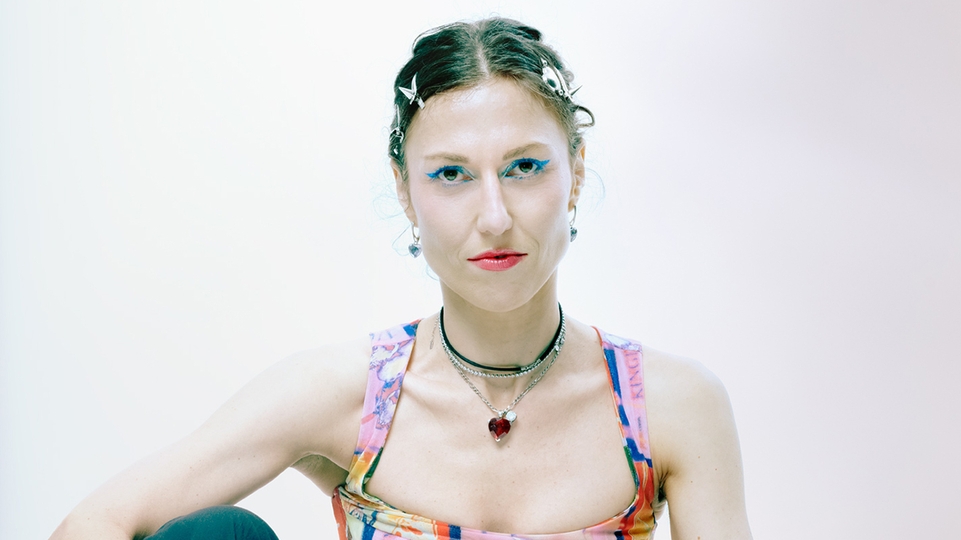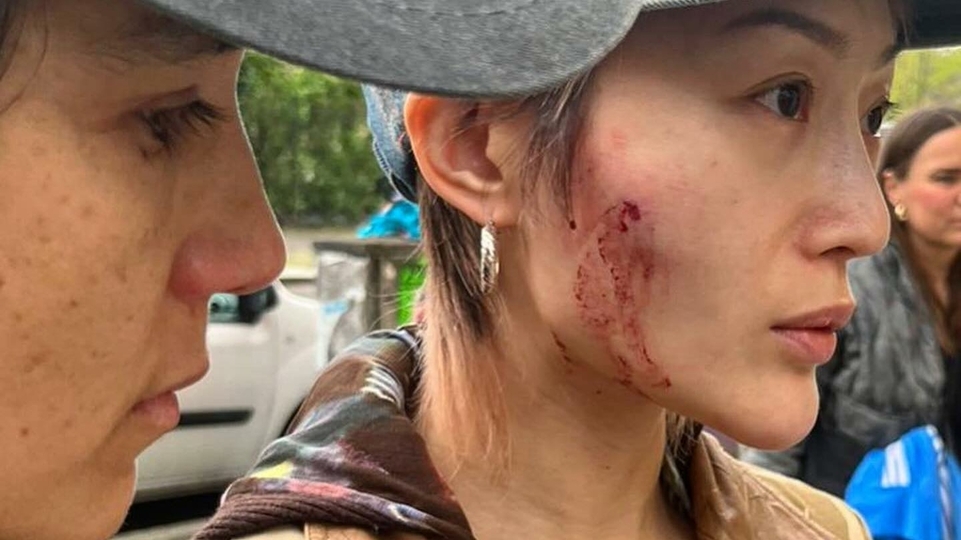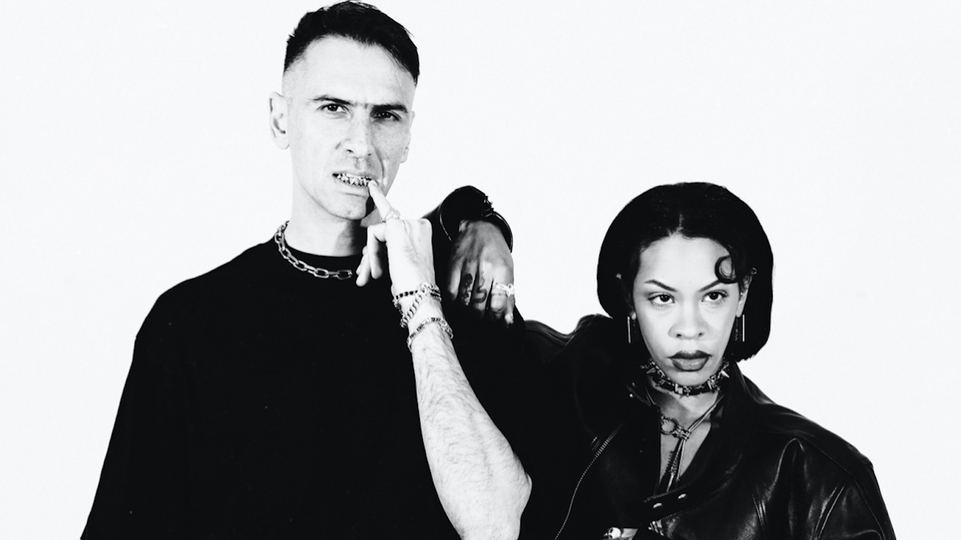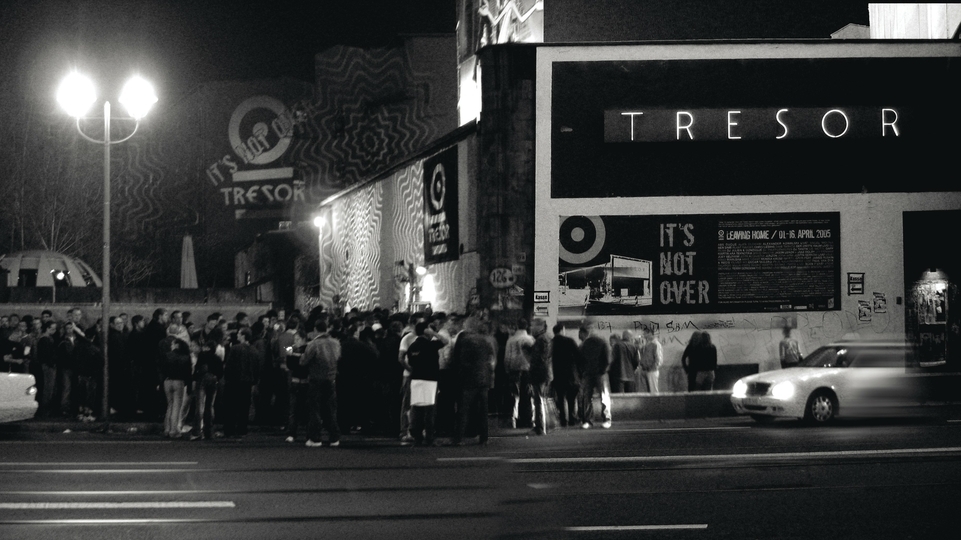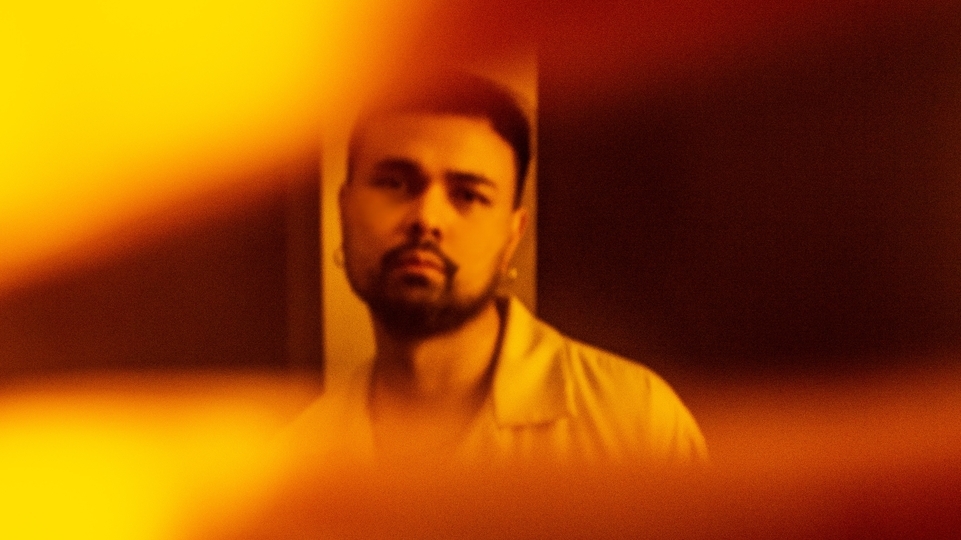
At home with: JakoJako
Berlin-based modular obsessive and Berghain resident, JakoJako, shows Niamh O'Connor around her hardware-heavy studio, the famous local synthesiser store where she works, and her favourite place to grab a bowl of pho
Sibel Koçer comes bounding down Kottbusser Tor street when DJ Mag meets her on an overcast morning in July. She’s here to take us inside SchneidersLaden synthesiser store in Berlin, where she works weekly. The rest of the time, she’s either producing music under her JakoJako alias in her home studio nearby in Friedrichshain, or performing live modular-led shows and DJ sets around the globe.
Last weekend, DJ Mag saw her soundtrack Berghain, where she soared through a slamming techno set across four hours, conjuring up a wild, primal mood on the dancefloor. Today, she’s bright-eyed and cheerful, emanating the same warm energy she projected from the DJ booth. Dressed in a slouchy green shirt, a blue crop-top and black Adidas trousers, she takes us up the dimly lit, graffitied stairwell to the shop. Customers can only access the store by a bell from the street below, and the shop has yet to open for another hour. The nondescript store entrance makes it feel a little exclusive.
“I remember being shy to go in here,” Koçer recalls as she makes coffee, before leading DJ Mag to the showroom where stacked modular synths line the walls. She describes the typical customers of SchneidersLaden — guys aged between 30 to 60, and some young women too. “Maybe from all those customers, 20% are real musicians making a living from it and doing it professionally, and the rest is more like hobby people, doing their patches at home, maybe having a YouTube channel or something like that.”
She talks us through the different synths on display in the showroom, summing up each one with short, staccato descriptions like “that’s killer” or “this is more polyphonic stuff” and “this one is Berlin techno, this one is more experimental”. Among the twinkling modules and colourful cables, there are unusual quirks in the store, like a mannequin’s stray arm lying on top of a modular case, accompanied by its disembodied head in a blonde wig.
Having worked in SchneidersLaden for the last five years, Koçer does “a little bit of everything”. But one of her central roles is to guide newbies in the modular world and help them make the right purchase. Several brands and similar-looking synths are on offer in SchneidersLaden, some ranging from €500 to upwards of €25,000 — it can be overwhelming for first-timers. “This is how we support people,” says Koçer. “So that they are protected from mis-purchases. They get frustrated, and then they think ‘This is all crap, I’m never able to learn this’. So you guide them through. Then they make good decisions, hopefully, and then have a new hobby — forever!”
Before she coined her JakoJako moniker, making music on modular synths was a hobby. Ten years ago, she moved to Berlin to study nursing, but it was the thriving techno scene that initially drew her to the German capital rather than academic reasoning. Fascinated with synthesis and sounds that “you can’t copy with your mouth”, Koçer started to play around with cheap synthesisers and Ableton. “But I wasn’t satisfied with workflow,” she explains. “I was done with all the desktop synthesisers.”
Frustrated with a lack of modulation sources, LFO addition and the limitations of producing purely on a DAW, Koçer experimented with a Korg Volca Bass groovebox and some small DIY synths before investing in an Arturia MiniBrute. “I knew you could have this with Eurorack synthesisers,” she says. “You have open possibilities to put modulation wherever you want, limited only to the modules you have.”
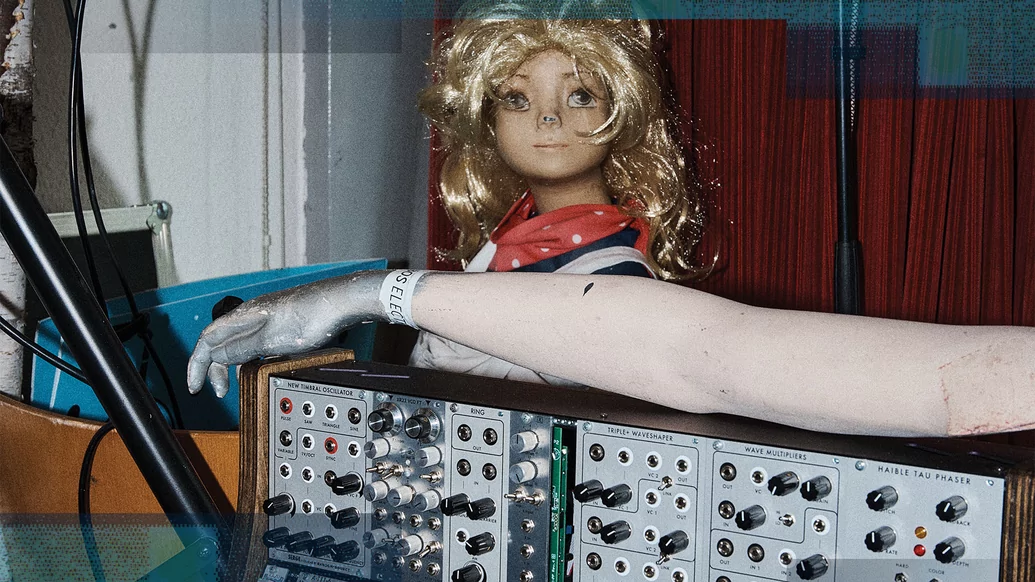
While the production possibilities seem endless on a modular synth, there is one significant limit — money. “I was poor as fuck,” says Koçer, recalling her early days in the city. “I was studying, and I was working. And I was buying here. So I was always without cool clothes! But it worked out. Every month I bought one piece of gear or one piece of module, and this is how I managed. You just have to get creative and find your way to work with a limited amount of modules.”
Although she’s collected many modules, built a solid home studio, departed from a career in nursing, and instead followed a path in producing and DJing, Koçer still works in SchneidersLaden because it’s one of the “pillars” in her fast-paced life. The job keeps her “grounded”. But mainly, she considers it a place to learn and stay connected with her colleagues — also musicians — who bounce off one another. “It’s important; that’s why I still like coming here even though my time is limited,” she says, smiling. She worked four to five days a week before her touring schedule took off earlier this year. “It’s the exchange and the vibe. It’s fun! It’s punk. It’s a cool job and just a cool place to be.”
It’s midday and time for the store to open, so we head outside and take the S-Bahn to Koçer’s apartment in Friedrichshain, where she lives with her partner. En route, she tells us she used to live near Tresor, where she was a regular raver and absorbed the sounds of Mike Huckaby and Octave One. In April, she performed an enchanting live set in Tresor, streamed by ARTE Concert as part of the club’s 30th anniversary. Performed in collaboration with dancer and choreographer Annalise Van Even, aka Nana, the set offered an insight into the introspective palette of JakoJako, displaying her drive to blend two disciplines — sound and movement.
We arrive at a typical Berlin-style apartment block, a few stories high with rectangular windows. Koçer brings us through a drafty corridor and up a wide staircase to her apartment. Inside, it’s bathed in natural daylight, and we head to her bedroom-slash-studio, where abstract artwork and potted plants punctuate the muted decor. Her sprawling but neat setup dominates one side of the room, including an Elektron Analog Rytm drum machine, ARGON8-M wavetable synth and Waldorf Iridium digital synth, amongst other bits of gear.
A deep-dive into Koçer’s setup follows suit. “This is my modular,” she says, pointing to a series of modules and multi-coloured wires spitting out from a lilac case. “This is how I do mainly arpeggiator melodic stuff like the album ‘Metamorphose’,” she says, showing us the cassette tape version. It’s Koçer’s debut LP, released on German label Bigamo, brimming with lush ambient tones and emotive melodies.
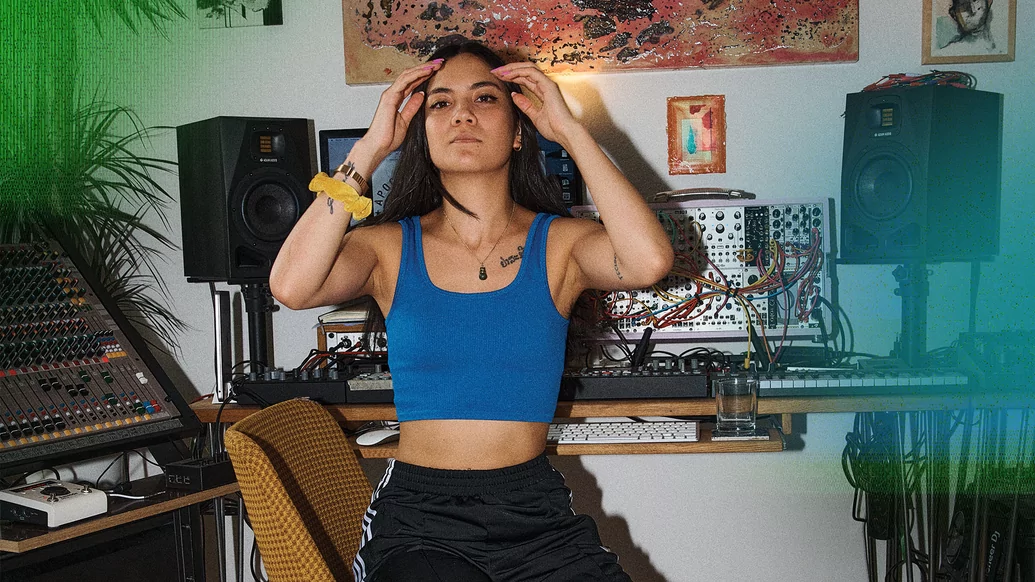
While her studio is extensive, she explains everything clearly, as if she were back in SchneidersLaden. “This is my new 1010music Blackbox, which is the smallest, best-sounding sampler I know. I bought it for the reason of minimising my live setup. It’s so tiny but so strong! A lot of functions in one thing. DIY-ish.” A PC sits amid the synths and sequencers. “I’m an Ableton kid, Berlin-style,” says Koçer. “It’s just similar to the Eurorack system because you can build racks, and you can stack FX, like how I would build a rack in a Eurorack — I would do a similar vibe on Ableton. I just put everything in one thing, then I make macros and put LFOs on things.”
Our conversation turns to her roots in punk. Koçer’s first introduction to music was through hardcore punk bands like Apocalipstix and Sniffing Glue, later getting into The Prodigy. She dabbled in guitar in her teens before exploring electronic music. “Techno I already had in my old hometown,” she says, tracing back to rave culture in West Germany. Kompakt Records influenced the sound of the circuit at the time. “You probably know the track Oxia ‘Domino’?” she asks us, to which we affirm. “This melodic minimal stuff was the thing,” she says, citing Extrawelt and Tin Man as some sources of the “after-hours tracks” in her locale.
Weekend rave trips to Berlin were the norm for Koçer before she moved to the city in her early twenties, when she received a scholarship to study nursing. “I came here alone, but I knew it would be easy for me because I went here a few times,” she says. “I met people, and I realised it’s easy to survive here. People are nice, open and friendly. There is enough to explore so I wouldn’t be bored.”
As part of her training, she worked in a hospital for seven 12-hour nightshifts every month. Looking after a patient in a coma, Koçer would do checks every hour, from providing injections to cleaning the patient’s trachea canular tube. In-between tasks, she would read books on modular synthesisers and the history of electronic music. But by the time she qualified, she was fast approaching burn-out. Between working, advancing her studies in a Nursing Service Management course, producing music and partying when she had enough energy, she decided to make a change. “I saved money so I could just stop working [in the hospital],” she says. “I was trusting in life. And it came step by step. I started working at SchneidersLaden. I stopped the other things slowly over years, fading into what I am living now.”
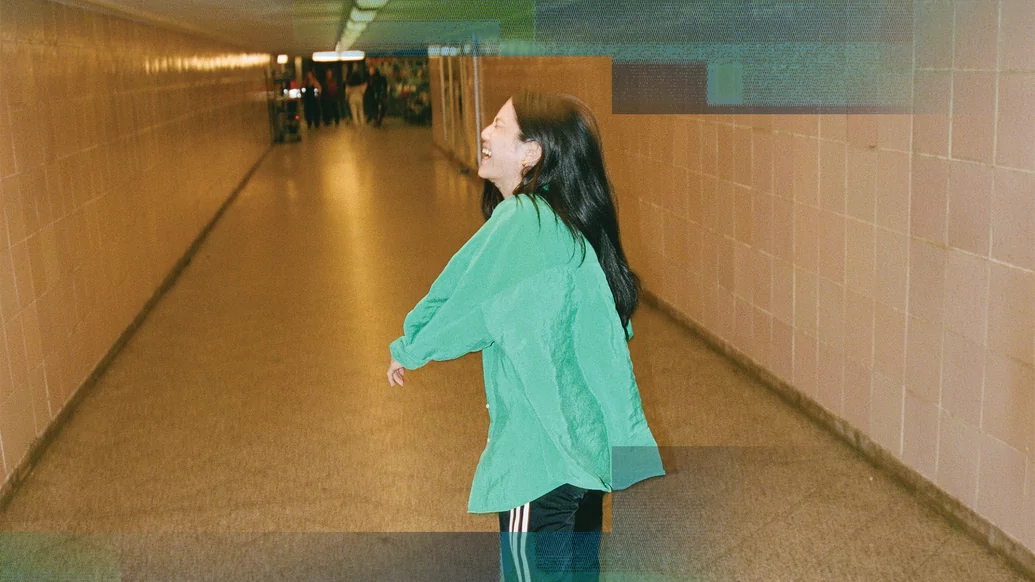
“I’m not religious but... spiritual in terms of going to Berghain and raving and having these spiritual moments where you’re dancing on your own, and you’re just having the time of your life alone — if that is spiritual, then I am spiritual.”
In 2018, Koçer played her first live set in the store. “There was a SchneidersLaden party that my colleague Jessy organised, and she said, ‘You wanna play?’ and I was like, ‘Ahh yeah, maybe I invite one or two friends and we jam together?’ She was, ‘No, no you do it alone’. I was like, ‘Hmm OK, I do it alone’,” she says, laughing. “From there on I got requests, because I always recorded the sets and put them on SoundCloud. And then people heard it and invited me, which is how I got experience and played at some exhibitions.”
With a growing archive of recorded live jams on SoundCloud, Berlin-based label and event series Leisure System released her first EP ‘Aequilibration’ in 2019, and the same year, she played her first live set in Berghain — as a non-resident — with the Leisure System crew, alongside Ben UFO and Marie Davidson. “There were shows with people I looked up to, I was on the same line-up with them,” she says. “I was working a lot in SchneidersLaden. Then I started to take music a bit more seriously because I got a serious fee for the first time, not just playing for free or €250.”
When the first lockdown hit Berlin in March 2020, though, Koçer’s gigs went on the back burner, and SchneidersLaden operated online. “I had time to reset,” she says. “I had time to think about ‘What is it that I really want? Which direction do I wanna go?’ Then these online streams came.” While clubs remained closed, FACT Magazine filmed a Patch Notes jam from her home studio, and then Electronic Beats TV interviewed her a few months later — also at home — propelling the sound and vibe of JakoJako to an international, locked-down audience.
Then came a slew of releases. Koçer contributed the brooding track ‘Mondschein’ on the ‘We Are Not Alone Pt. 2’ V/A curated by Ellen Allien. Then, she collaborated with Tresor resident Mareena on their EP ‘Atlas der Gedanken’, released on Japanese imprint Muzan Editions. She returned to Leisure System in 2021 with her second release, ‘Lux’. Around this time, the Berghain team summoned her to a meeting. “I was really nervous, I had some friends waiting outside for me,” recalls Koçer. “They asked questions like ‘Where do you musically come from?’ Then some general rules explaining what they are up for, like what I can’t expect from the club and what I can expect from it, you know, working with them. It was kind of like a work interview.”
Relieved to land her first booking agent, Kavan, who still looks after her schedule today, it was only after she was signed to the Ostgut agency that she realised she was also a resident of Berghain. “It took me a few months,” she says, laughing. “Now, I’m slowly understanding it, and I know what it means. It was just a totally new field for me.”
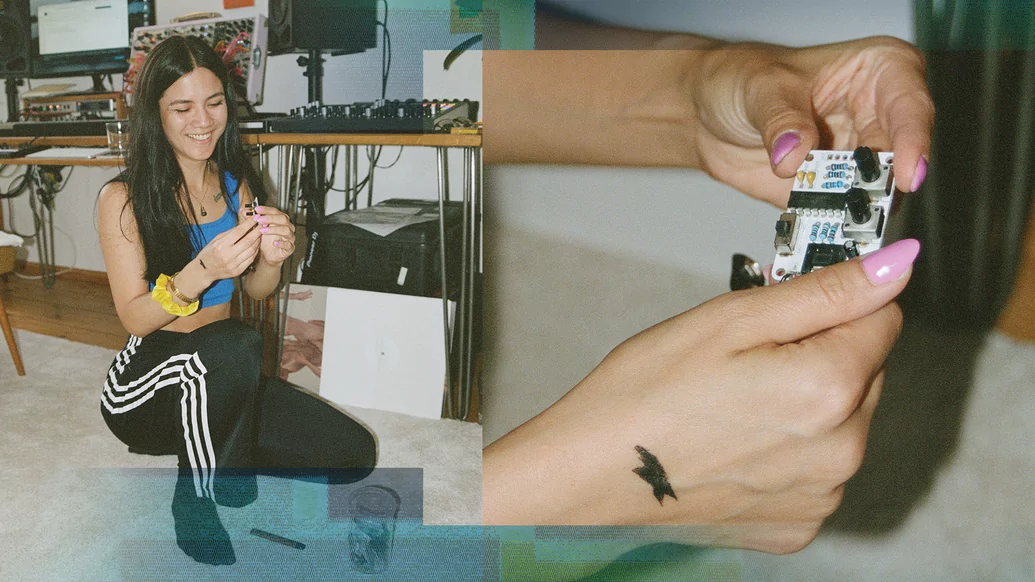
Since she joined the roster, Koçer has played Thuishaven with Colin Benders in Amsterdam, Patchwork in Belgium and several live and DJ sets in Berghain. She also collaborated with Rødhåd on their first album, ‘IN VERE’, via his label WSNWG. “He’s cool, he’s a chilled dude,” she says. “Sometimes people have a big ego, and then you enter their studio, and they’re in their comfort zone. It’s like they are presenting you something they wanna present to someone. And you’re like, ‘Cool, can I try this synthesiser?’ and they’re like ‘Νo!’ I think you can hear in all the collaborations Rødhåd does that he gives a lot of space to the person he invites. That’s a good quality for a collaborator.”
But one thing Koçer hasn’t dipped into yet is screaming into a microphone and distorting the result into her sets. She powers up a whirring, slow-burning number by the German duo Selm on YouTube. “They are super technical and also build some stuff,” she says excitedly. “This, I am not able to do, but I’m a huge fan.” But she’s working towards debuting her scream-meets-noise work as part of a Mute Records showcase at Ombra Festival in Barcelona. “They call it an ‘Unusual Sounds Gathering’, and this is my new goal,” she says, speaking about her upcoming showcase with the Mute crew. She’s due to release on the label too. “I want to be able to do it, I want to feel that cool, but let’s see.”
Heading for lunch at Umami, an Asian restaurant in Friedrichshain, Koçer tell us it’s her go-to spot after she arrives home from gigs — literally. Fresh from the airport, she would walk across the road from Ostkreuz train station and straight to Umami. Her favourite dish here is pho. “It’s one of my comfort foods, and it’s healthy too,” she tells us, tucking into a bowl of the Vietnamese soup. “I have my routines. I have my pho. Getting routines — this is one of those pillars in life, like work, home and family.”
As we finish up our belly-hugging lunch, we reflect on her previous releases, especially the more ambient-led EPs, some of which display orchestral, even angelic, vibes. We’re curious to know if Koçer is spiritual. “I’m not religious but... spiritual in terms of going to Berghain and raving and having these spiritual moments where you’re dancing on your own, and you’re just having the time of your life alone — if that is spiritual, then I am spiritual.”

